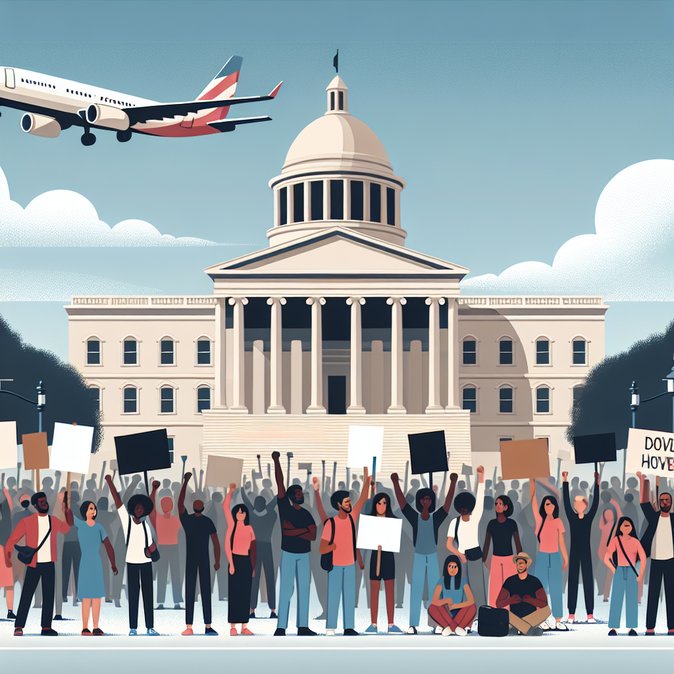
Hundreds of protesters converged on Maryland’s State House in Annapolis on October 27, urging Governor Wes Moore to cancel the state’s $150 million contract with budget carrier Avelo Airlines to operate U.S. Immigration and Customs Enforcement (ICE) deportation flights. The rally, led by immigrant-rights groups and backed by several Democratic legislators, marks the most concerted state-level effort yet to disrupt a burgeoning private-charter market that transports detainees from regional airports to federal removal hubs.
Avelo, which began deportation flights out of Baltimore/Washington International Thurgood Marshall Airport (BWI) this spring, has already dropped several commercial routes after facing a nationwide boycott campaign. Activists accuse the company of profiting from what they call “family-separation flights” and point to Supreme Court rulings that question aspects of expedited-removal procedures.
For global-mobility managers the episode is a reminder that deportation logistics increasingly involve private carriers whose public-facing brands overlap with corporate-travel programs. Companies that contract with Avelo for employee travel— common on the West Coast— must weigh reputational risk and potential traveler backlash.
State Senator Clarence Lam told the crowd he will introduce legislation barring Maryland agencies from contracting with airlines that transport detainees, echoing similar «sanctuary procurement» laws enacted in California and Illinois. If adopted, the measure could force ICE to relocate flights to less convenient airports, increasing transfer times and costs.
Employers with foreign national staff passing through BWI should monitor possible schedule adjustments and ensure their compliance teams have up-to-date contact protocols should employees encounter immigration enforcement actions during travel.
Avelo, which began deportation flights out of Baltimore/Washington International Thurgood Marshall Airport (BWI) this spring, has already dropped several commercial routes after facing a nationwide boycott campaign. Activists accuse the company of profiting from what they call “family-separation flights” and point to Supreme Court rulings that question aspects of expedited-removal procedures.
For global-mobility managers the episode is a reminder that deportation logistics increasingly involve private carriers whose public-facing brands overlap with corporate-travel programs. Companies that contract with Avelo for employee travel— common on the West Coast— must weigh reputational risk and potential traveler backlash.
State Senator Clarence Lam told the crowd he will introduce legislation barring Maryland agencies from contracting with airlines that transport detainees, echoing similar «sanctuary procurement» laws enacted in California and Illinois. If adopted, the measure could force ICE to relocate flights to less convenient airports, increasing transfer times and costs.
Employers with foreign national staff passing through BWI should monitor possible schedule adjustments and ensure their compliance teams have up-to-date contact protocols should employees encounter immigration enforcement actions during travel.










